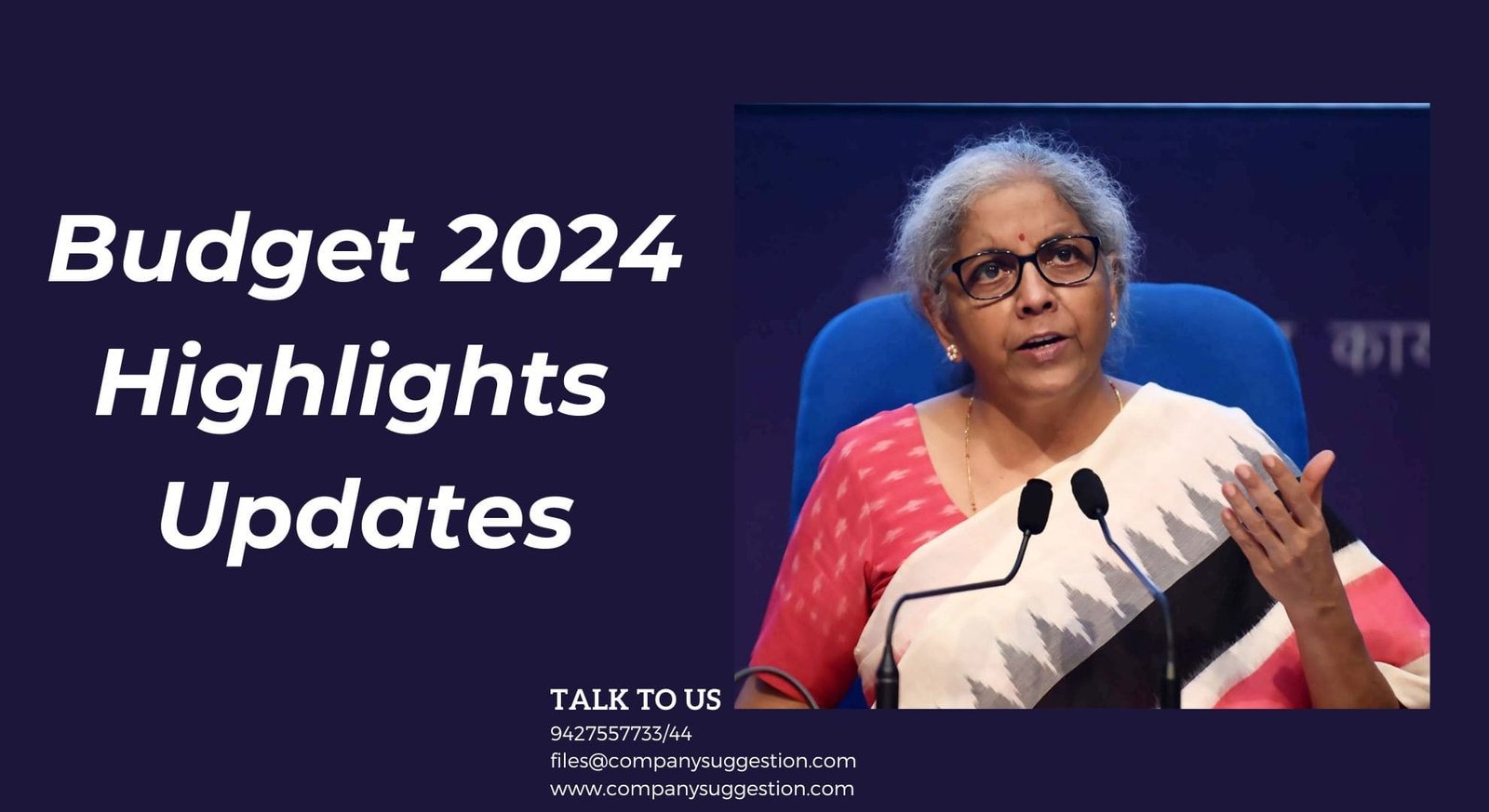Budget 2024 Highlights Updates: Key takeaways from Finance Minister Nirmala Sitharaman’s speech
Finance Minister Nirmala Sitharaman emphasized nine key priorities in the Union Budget 2024-25, targeting economic growth and opportunity enhancement. She focused on increasing productivity, generating jobs, ensuring social justice, developing urban areas, securing energy supplies, enhancing infrastructure, fostering innovation, and implementing reforms. These priorities build on the initiatives announced in the interim budget earlier in February, reflecting the government’s ongoing commitment to these areas.
Allocation for Council of Ministers
The Union Budget for 2024-25 has earmarked ₹1,248.91 crore for the expenses of the Council of Ministers, the Cabinet Secretariat, the Prime Minister’s Office, and hosting state guests. This is a reduction from the ₹1,803.01 crore allocated in 2023-24. Specifically, ₹828.36 crore has been designated for the Council of Ministers’ expenses, down from ₹1,289.28 crore in the previous year. This funding covers salaries, allowances, travel costs for cabinet ministers, ministers of state, and former prime ministers, as well as provisions for special VVIP flight operations
Budget Estimates
- Total Receipts (excluding borrowings): ₹32.07 lakh crore
- Total Expenditure: ₹48.21 lakh crore
- Net Tax Receipts: ₹25.83 lakh crore
- Fiscal Deficit: 4.9% of GDP
These figures outline the government’s financial plans and projections for the fiscal year 2024-25.
Abolition of Angel Tax
To promote investment, employment, and social security, the Union Budget 2024-25 proposes the abolition of the Angel tax for all investor categories, aiming to enhance the Indian start-up ecosystem.
The Angel tax will be abolished for all types of investors to support the start-up environment.
Proposed Tax Structure
Under the new tax regime, the following tax rate revisions are proposed:
- Income up to 3 lakh rupees – No tax
- Income from 3 to 7 lakh rupees – 5 percent
- Income from 7 to 10 lakh rupees – 10 percent
- Income from 10 to 12 lakh rupees – 15 percent
- Income from 12 to 15 lakh rupees – 20 percent
- Income above 15 lakh rupees – 30 percent
These changes could allow a salaried individual to save as much as Rs 17,500 in income tax.
The corporate tax rate for foreign companies will be lowered from 40% to 35%.
New Employment and Skill Development Schemes
Under the Prime Minister’s Package, three initiatives have been introduced under the ‘Employment Linked Incentive’ program:
Scheme A: First-Time Employees
Provides a direct benefit transfer of one month’s salary in three instalments, up to Rs. 15,000, to new employees registered with the EPFO.
Scheme B: Job Creation in Manufacturing
Offers incentives to both employees and employers based on their EPFO contributions during the first four years of employment.
Scheme C: Employer Support
Employers can receive a reimbursement of up to Rs. 3,000 per month for two years for each additional employee, covering part of their EPFO contributions.
Focus on MSMEs
The Union Budget for 2024-25 places a significant emphasis on micro, small, and medium enterprises (MSMEs) and the manufacturing sector, with a special focus on labour-intensive manufacturing industries.
- A new system has been introduced to help ensure that MSMEs can continue to receive bank credit during times of financial strain.
- The maximum amount for Mudra loans has been doubled, increasing from Rs 10 lakh to Rs 20 lakh.
Focus on employment
Finance Minister Nirmala Sitharaman has emphasized that the budget will prioritize employment, skill development, small and medium enterprises (MSMEs), and the middle class. She announced a Prime Minister’s package comprising five schemes and initiatives aimed at creating employment, enhancing skills, and providing opportunities for 41 million young people over the next five years, with a central funding of Rs. 2 lakh crores.
Robust Fiscal Backing for Infrastructure Over the Next Five Years
- The government plans to provide substantial fiscal support for infrastructure development over the next five years.
- Capital expenditure is set at Rs. 11,11,111 crores, which represents 3.4% of India’s GDP.
- There will be an allocation of Rs. 1.5 lakh crore for long-term, interest-free loans aimed at boosting infrastructure investments by State Governments.
Increase in Standard Deduction for Salaried Employees Proposed
Finance Minister announced, “Regarding personal income tax rates, I have two updates for those choosing the new tax regime. Firstly, the standard deduction for salaried employees is proposed to be raised from Rs 50,000 to Rs 75,000. Additionally, the deduction for family pensioners is set to increase from Rs 15,000 to Rs 25,000. These changes are expected to benefit around four crore salaried individuals and pensioners.”
Fiscal deficit seen lower
The fiscal deficit is expected to be 4.9% of GDP, which is lower than the forecasted figure in the interim Budget. In her interim Budget address on February 1 of this year, the projected deficit was 5.1%.
Taxation Updates in the Union Budget
- The annual exemption limit for capital gains is proposed to be increased to Rs 1.25 lakh.
- Securities Transaction Tax (STT) on Futures and Options (F&O) is raised to 0.02% and 0.1%.
- The corporate tax rate for foreign companies is reduced to 25%.
- The limit for Long-Term Capital Gains (LTCG) has been increased from 10% to 12.5%.
- Short-term capital gains on specific financial assets will be taxed at 20%, with the remaining assets taxed at the applicable rates.
- Long-term capital gains will now be taxed at 12.5%.
- Financial assets listed on the stock exchange and held for over a year will be considered long-term.
- The Tax Deducted at Source (TDS) rate for e-commerce operators will be lowered to 0.1% from 1%.
- A 20% tax rate will apply to certain assets, with the remaining assets subject to applicable tax rates.
- Financial assets that are listed and held for more than a year will be classified as long-term.
- Unlisted bonds and debentures, regardless of holding period, will attract Capital Gains Tax (CGT) at the applicable rates.
- The Angel Tax has been abolished for all investor categories.
- Professionals in multinational corporations who receive Employee Stock Options (ESOPs) and invest up to Rs 20 lakh in movable assets abroad will not face criminal charges or penalties.
- Under the new tax regime, the standard deduction has been increased to Rs 75,000 from Rs 50,000.
- The deduction on family pension for pensioners will be raised to Rs 25,000.
- A salaried individual could potentially save Rs 17,500 in income tax.
Company Suggestion has the best team of consultancy. Our consultants are not just advisors but partners invested in your long-term success. We provide actionable insights and practical recommendations, empowering you to make informed decisions. Transparency, integrity, and continuous improvement are the cornerstones of our practice.
If you have any doubt regarding this, then you can send your doubts on company suggestion and our team of experts will guide you.












